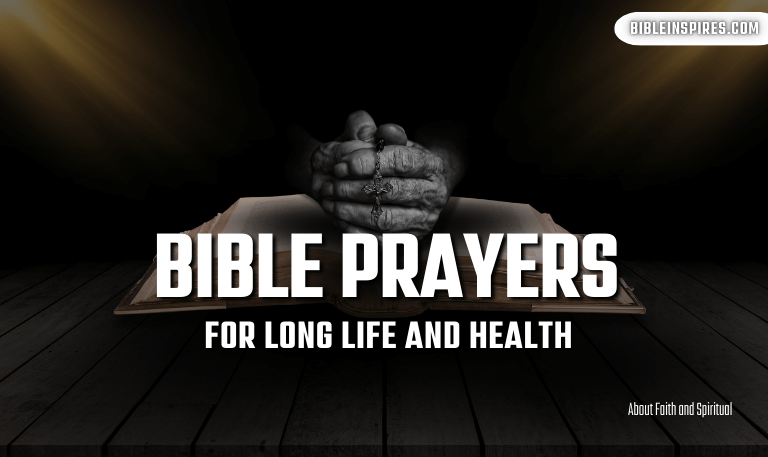The question of Why Does God Punish Disobedience is deeply intertwined with our understanding of divine justice, mercy, and the purpose of human life. In both the Old and New Testaments, we see numerous instances where God administers punishment for acts of disobedience. Yet, alongside this punishment, there are also profound expressions of mercy, forgiveness, and grace. For believers, understanding the balance between justice and mercy is critical to grasping the nature of God.
In this article, we will explore the biblical basis for divine punishment, why it is necessary, and how it plays a crucial role in our spiritual journey. We will also address common misconceptions and provide practical advice on how to navigate this challenging topic.
Understanding God’s Justice
The Nature of Divine Justice
God’s justice is rooted in His perfect nature. He is righteous, holy, and good, and His actions, including punishment, are always aligned with these attributes. Divine justice is not arbitrary; it is a reflection of God’s moral perfection. When humanity disobeys God’s commands, it disrupts the divine order He has established. Punishment, then, is necessary to restore that order.
The Difference Between Punishment and Discipline
While punishment and discipline are often used interchangeably, they have distinct meanings in the context of God’s justice. Punishment is typically seen as a consequence for wrongdoing, a means to rectify an injustice. Discipline, on the other hand, is often corrective and intended to guide the individual toward growth and improvement. In God’s plan, both punishment and discipline are essential for maintaining holiness and righteousness.
Read Also: Bible Verses About Disobedience
The Biblical Foundation for Punishment
Old Testament Perspectives
![Why Does God Punish Disobedience? [2025 Guide] 6 Why-Does-God-Punish-Disobedience](https://bibleinspires.com/wp-content/uploads/2025/04/Why-Does-God-Punish-Disobedience.png)
In the Old Testament, punishment for disobedience is often depicted as a way for God to enforce the covenant He made with His people. For instance, after the fall of Adam and Eve, God pronounced consequences that would affect humanity’s relationship with Him forever (Genesis 3). The flood in Noah’s time (Genesis 6-9) and the destruction of Sodom and Gomorrah (Genesis 18-19) are other examples of God’s punishment for widespread disobedience. These stories demonstrate that God’s justice is both personal and corporate, affecting individuals and entire nations.
New Testament Insights on Disobedience
The New Testament emphasizes God’s desire for people to obey Him and the consequences of disobedience. Jesus’ teachings frequently highlight the importance of obedience, such as in the parable of the two sons (Matthew 21:28-32), where the son who initially disobeyed but later repented is praised. Jesus also warned that disobedience would lead to eternal consequences (Matthew 25:31-46).
The Role of Free Will in Disobedience
One of the central aspects of human existence is the gift of free will. God allows people to choose whether to follow Him or not. However, with this freedom comes responsibility. Disobedience occurs when humans choose their will over God’s, and it is through this disobedience that they incur the consequences outlined in Scripture.
Read Also: Christianity vs New Age Numerology
Why Does God Punish Disobedience?
To Uphold Divine Order
God created the world with a certain order, and human disobedience disrupts this order. Just as a society needs laws to function, God’s creation needs the adherence of His people to His commands. Punishment, in this sense, is necessary to preserve the harmony and peace that God intended.
To Teach and Correct
Another important reason for divine punishment is to correct the individual or society and lead them toward repentance and growth. In Hebrews 12:6, it is written, “The Lord disciplines those He loves, and He punishes everyone He accepts as a son.” This shows that God’s punishment is not only a consequence but also a tool for spiritual development.
As a Warning to Others
Divine punishment also serves as a warning to others who might be tempted to disobey God. In 1 Corinthians 10:11, Paul writes, “These things happened to them as examples and were written down as warnings for us.” God’s judgment serves as a reminder that disobedience has serious consequences.
To Preserve Holiness and Righteousness
God’s holiness demands that sin be punished. Disobedience, in its essence, is a rejection of God’s holiness, and it cannot be allowed to stand unaddressed. By punishing disobedience, God upholds His righteousness and the purity of His nature.
Common Misunderstandings of Divine Punishment
Is God Unjust in Punishing Disobedience?
![Why Does God Punish Disobedience? [2025 Guide] 7 signs-that-god-is-punishing-you](https://bibleinspires.com/wp-content/uploads/2025/04/signs-that-god-is-punishing-you.png)
One common misconception is that God’s punishment for disobedience is unjust or disproportionate. However, Scripture teaches that God’s justice is always fair and righteous. Romans 2:6-11 explains that God will render to each person according to their deeds. Divine punishment is not excessive but is always in line with the severity of the sin committed.
Is All Punishment Immediate?
While some punishments in the Bible are immediate (e.g., the destruction of Sodom and Gomorrah), others are not. Often, God allows time for repentance. In the case of Israel, God gave His people multiple opportunities to turn back to Him before bringing judgment. God’s patience is part of His mercy.
Read Also: Biblical Meaning of 333
Does God Always Punish Disobedience?
While God does punish disobedience, it is important to remember that He is also merciful and willing to forgive those who repent. In the parable of the Prodigal Son (Luke 15:11-32), the father forgives his son’s disobedience and welcomes him home. This illustrates that repentance can prevent or remove punishment.
Case Studies of Divine Punishment in Scripture
Adam and Eve’s Disobedience
The story of Adam and Eve’s disobedience in the Garden of Eden is perhaps the most well-known example of God punishing disobedience. Their choice to eat from the Tree of Knowledge resulted in the fall of humanity and the introduction of sin into the world. The punishment was both personal (banishment from the Garden) and cosmic (the curse of sin upon all mankind).
The Golden Calf Incident
When Moses went up to Mount Sinai to receive the Ten Commandments, the Israelites grew impatient and created a golden calf to worship. In response, God sent a plague and commanded the Levites to kill the idolaters (Exodus 32). This act of idolatry led to severe punishment, demonstrating that disobedience to God’s commands is unacceptable.
King Saul’s Disobedience
King Saul’s refusal to completely obey God’s commands in 1 Samuel 15 led to his rejection as king. Saul spared King Agag and the best of the livestock, contrary to God’s instructions. As a result, God withdrew His favor from Saul, and he lost his throne.
Ananias and Sapphira’s Deception
In the New Testament, Ananias and Sapphira were struck dead by God for lying about their donation to the early Christian community (Acts 5:1-11). This immediate punishment highlights the seriousness of disobedience, even in the early church.
Read Also: Bible Verses That Sound Made Up
The Role of Repentance and Forgiveness
Can Punishment Be Avoided Through Repentance?
Yes, repentance is key to avoiding or mitigating punishment. In 2 Chronicles 7:14, God promises, “If my people, who are called by my name, will humble themselves and pray…Then I will forgive their sin and will heal their land.” Repentance restores the relationship with God and averts the consequences of sin.
God’s Mercy in the Face of Disobedience
![Why Does God Punish Disobedience? [2025 Guide] 8 why-does-god-punish-some-and-not-others](https://bibleinspires.com/wp-content/uploads/2025/04/why-does-god-punish-some-and-not-others.png)
While God’s justice demands punishment, His mercy allows for forgiveness. In 1 John 1:9, it says, “If we confess our sins, he is faithful and just and will forgive us our sins and purify us from all unrighteousness.” God’s willingness to forgive makes repentance a powerful tool for avoiding punishment.
The Prodigal Son: A Lesson in Grace
The parable of the Prodigal Son offers a powerful example of God’s grace. The son’s disobedience resulted in his downfall, but his repentance led to his restoration. This story emphasizes that no matter how far one has strayed, God is always ready to forgive and restore.
Practical Implications for Believers
How to Avoid Disobedience
Believers are called to follow God’s commands in both thought and action. Regular prayer, studying the Bible, and seeking accountability are essential practices to avoid disobedience.
How to Seek Forgiveness and Avoid Punishment
If a believer falls into disobedience, they must repent and seek God’s forgiveness. This involves confessing sins, turning away from wrongdoing, and striving to live in alignment with God’s will.
Trusting in God’s Plan for Discipline
Though punishment and discipline can be painful, they are part of God’s loving plan to shape believers into the image of Christ. Trusting in God’s wisdom and love during times of correction is essential for spiritual growth.
Why Does God Punish Disobedience FAQs
Q: Is God’s punishment always immediate?
A: Not always. While some punishments are immediate, others may be delayed to allow time for repentance.
Q: Can disobedience lead to eternal consequences?
A: Yes, if it results in rejecting God’s grace and salvation. However, repentance can restore the relationship and avoid eternal consequences.
Q: How can I avoid God’s punishment?
A: By living in obedience to God’s commands, seeking His guidance, and repenting when we fall short.
Q: Does God always forgive disobedience?
A: God is willing to forgive all who truly repent, but forgiveness requires sincere contrition and a change of heart.
Conclusion
Understanding why God punishes disobedience is essential for deepening our faith and relationship with Him. Divine punishment serves to uphold justice, teach valuable lessons, and call us back to righteousness. It is not a sign of God’s wrath, but rather an expression of His love, guiding us toward spiritual growth. By embracing obedience and seeking forgiveness, we align ourselves with God’s will, avoiding the consequences of disobedience and embracing the fullness of His mercy.
![Why Does God Punish Disobedience? [2025 Guide] 4 Why-Does-God-Punish-Disobedience-[2025-Guide]](https://bibleinspires.com/wp-content/uploads/2025/04/Why-Does-God-Punish-Disobedience-2025-Guide.png)


